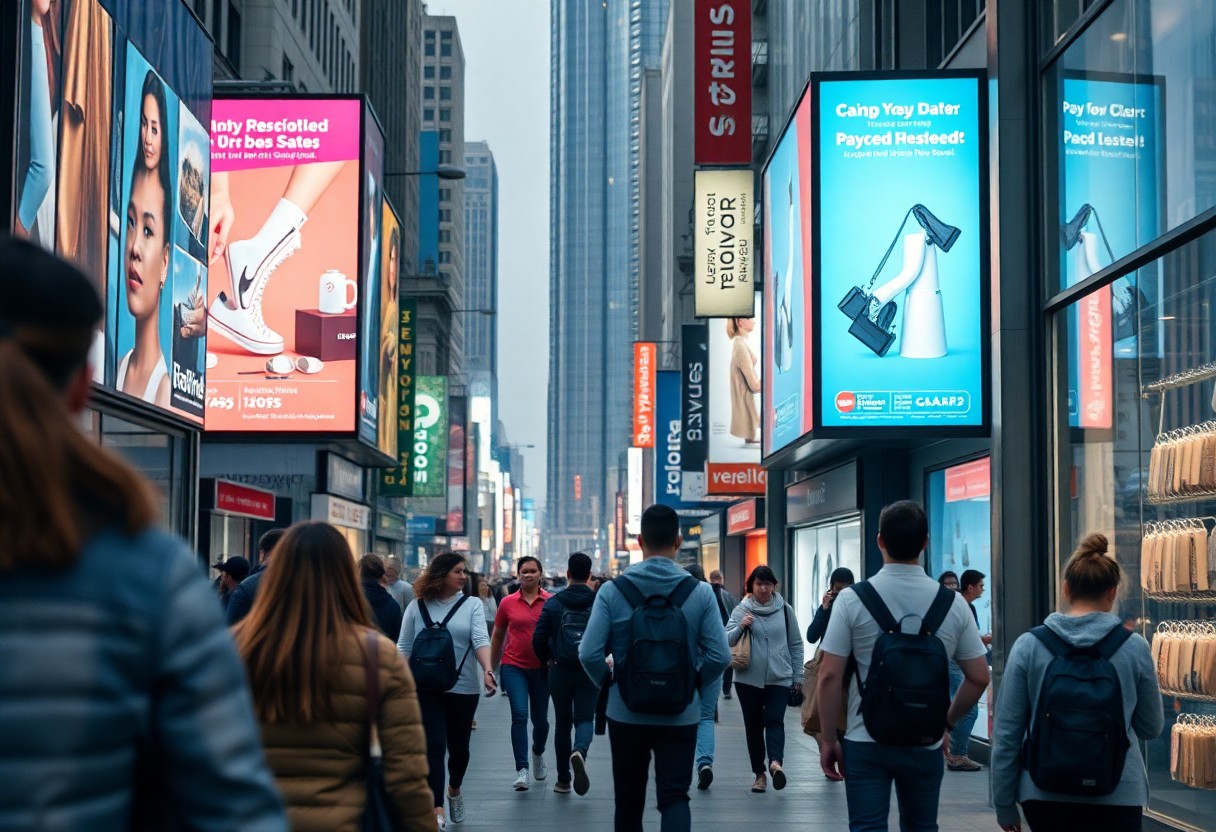
The Power of Hyper-Personalization – Why Generic Marketing is Dead.
Most marketers today recognize that generic approaches to advertising no longer resonate with audiences. As consumer expectations evolve, hyper-personalization has emerged as a game-changing strategy that enables you to tailor your messaging and offerings directly to individual preferences and behaviors. By leveraging data and insights, you can create unique experiences that not only engage your audience more effectively but also foster brand loyalty. This shift is imperative for staying relevant and competitive in a rapidly changing marketplace.

The Evolution of Consumer Expectations
Consumer expectations have shifted dramatically in recent years, driven by advancements in technology and data analytics. Today, you demand tailored experiences that resonate with your individual preferences and needs. This evolution compels brands to rethink their strategies, moving beyond one-size-fits-all solutions to engage you on a personal level. As personalization becomes the norm, brands that fail to adapt will quickly find themselves pushed aside by those that understand your unique requirements.
The Shift from Mass Marketing to Personal Touch
The days of mass marketing are fading, replaced by an urgent need for personal touch in your interactions with brands. You respond more positively to communications that reflect your specific interests rather than generic messages. Brands that leverage data and insights can create targeted campaigns that speak directly to you, enhancing your overall experience. Delivering relevant content and offers fosters deeper connections, ultimately driving loyalty and engagement.
The Rise of Digital Engagement and Customization
With the explosion of digital platforms, engagement and customization are no longer optional; they’re crucial. The wealth of data available allows brands to create experiences tailored specifically to you, from personalized product recommendations to customized email campaigns. Your online interactions inform brands about your preferences, enabling them to adjust their approaches in real-time and ensure that every touchpoint feels relevant.
This trend towards digital engagement and customization has been accelerated by the increasing sophistication of AI and machine learning technologies. Brands can analyze vast amounts of data from your online behavior, purchases, and even social media interactions to understand your preferences. A prime example is Spotify, which uses algorithms to curate personalized playlists based on your listening history. This level of customization not only enhances your experience but also reinforces brand loyalty, illustrating that the most successful companies are those that engage you in a highly personalized manner.
Dissecting the Hyper-Personalization Phenomenon
Hyper-personalization transforms marketing by leveraging sophisticated data analysis to deliver tailored experiences. This phenomenon redefines consumer interactions with brands, encouraging a deeper emotional connection and driving loyalty. By combining real-time data with behavioral insights, you can create not just targeted messages but also meaningful engagements that resonate with individual preferences, making your marketing efforts far more effective than traditional methods ever could.
Key Technologies Driving Personalization
Technologies like artificial intelligence, machine learning, and advanced analytics play pivotal roles in hyper-personalization. AI algorithms analyze vast amounts of data in real-time, enabling you to predict consumer behaviors and preferences. Machine learning models continuously adapt, ensuring your marketing strategies evolve with changing consumer dynamics. This sophisticated tech allows you to deliver personalized content and product recommendations at scale, significantly enhancing user experience and engagement.
Data Privacy Concerns and Ethical Considerations
As hyper-personalization expands, so do concerns around data privacy and ethics. You may find consumers increasingly wary of how their personal data is collected and used. Transparency in data practices is necessary; without it, businesses risk damaging trust and credibility. Compliance with regulations like GDPR and CCPA must inform your personalization strategies to protect consumer rights while still delivering impactful marketing.
Privacy issues surrounding hyper-personalization cannot be overlooked. In a survey, 86% of consumers expressed concerns about data privacy, emphasizing the need for brands to prioritize ethical data usage. You must clearly communicate how data is collected and used to build trust with your audience. Implementing robust security measures and considering opt-in strategies will help ensure your marketing efforts are both effective and respectful of consumer privacy, driving a more positive overall experience.
Crafting Tailored Experiences: Strategies for Success
To create impactful, personalized marketing strategies, focus on understanding your audience deeply. Employ data-driven methods to craft experiences that resonate with individual preferences and behaviors. Utilize touchpoints across the customer journey, ensuring that every interaction feels unique and relevant. The goal is to foster deeper connections, turning casual consumers into loyal advocates through these tailored experiences.
Segmentation and Behavioral Targeting Techniques
Implementing effective segmentation and behavioral targeting allows you to categorize your audience based on specific criteria such as demographics, interests, and purchasing history. Analyzing customer behavior helps identify patterns that inform personalized content and offers. By tailoring communications to various segments, you significantly enhance engagement, conversion rates, and customer satisfaction, ultimately driving better ROI.
Utilizing AI and Predictive Analytics Effectively
AI and predictive analytics empower you to anticipate customer needs and preferences with remarkable accuracy. By processing vast amounts of data, these technologies can identify trends and insights that help refine your marketing strategies. Implement AI tools to automate personalized content delivery, optimizing the timing and relevance of your messages while saving time and resources.
For instance, companies like Amazon utilize AI algorithms to analyze customer shopping patterns and recommend products based on past purchases. This hyper-personalized approach can lead to a 29% increase in sales conversion, demonstrating the effectiveness of using predictive analytics. By leveraging AI-driven insights, you can create tailored marketing campaigns that resonate with your audience, resulting in improved engagement and loyalty. This not only drives immediate sales but also builds long-term customer relationships, necessary for sustained business growth.
The Business Benefits of Ditching the Generic Approach
Focusing on hyper-personalization can transform your marketing strategy, driving substantial business benefits. By moving away from generic approaches, you cultivate deeper connections with your customers, leading to increased satisfaction and loyalty. This tailored engagement results in a more effective allocation of your marketing resources, ultimately enhancing your brand’s reputation and revenue. Clients who feel genuinely understood are more likely to engage, advocate, and invest in your offerings, elevating your business above the competition.
Boosting Customer Loyalty and Retention
Creating personalized experiences fosters a strong sense of loyalty among your customers. When your marketing resonates with individuals on a personal level, they feel valued and recognized. This emotional connection encourages repeat business, enhancing retention rates. For instance, a study found that 80% of consumers are more likely to make a purchase when brands offer personalized experiences, underscoring the value of tailoring your approach to each customer.
Increasing Conversion Rates through Personalized Journeys
Personalized marketing strategies significantly enhance your conversion rates by guiding customers through tailored journeys. When prospects encounter content, products, or offers that correspond directly to their interests and behaviors, they’re more inclined to take action. For example, companies leveraging personalized email campaigns see open rates increase by an average of 29%, leading to a 41% higher click-through rate. This targeted approach not only improves engagement but also motivates consumers to make purchases, translating into revenue growth for your business.
Your marketing efforts should seamlessly align with customers’ needs at every stage of their journey. Consider utilizing data analytics to track user behavior and preferences, allowing you to create dynamic, personalized interactions that evolve over time. By implementing tailored product recommendations, email follow-ups based on past purchases, and targeted promotional offers, you can guide customers from awareness to loyalty. Marketers who harness these personalized journeys often witness not just higher conversion rates but also increased customer lifetime value, reinforcing the dynamic impact of hyper-personalization.
Fostering a Hyper-Personalized Culture Within Organizations
Embracing a culture of hyper-personalization requires commitment from every level of your organization. This means fostering an environment where data-driven insights guide decisions and each team member understands the value of tailoring experiences to specific customer needs. By prioritizing personalization in your mission and values, you empower employees to innovate and embrace creative problem-solving, ultimately leading to more resonant marketing initiatives and stronger customer relationships.
Building Cross-Functional Teams for Collaboration
Creating cross-functional teams is key to driving hyper-personalization within your organization. By blending expertise from marketing, sales, customer service, and product development, you ensure diverse perspectives and insights fuel your strategies. These collaborative teams can quickly adapt and respond to customer feedback, share valuable data, and develop unified approaches that resonate with your audience while enhancing the overall customer experience.
Continuous Improvement Through Feedback Loops
Establishing effective feedback loops allows your organization to refine its personalization strategies continuously. Regularly collecting and analyzing customer feedback, whether through surveys, social media interactions, or direct communication, enables you to gauge what resonates with your audience. Implementing changes based on this feedback ensures your marketing efforts remain relevant and impactful, driving long-term success.
Feedback loops aren’t just about collecting data; they should actively inform your strategy. Implementing tools like Net Promoter Score (NPS) and customer satisfaction surveys help gather actionable insights. For example, companies using real-time feedback systems have reported a 25% increase in customer satisfaction after adjusting their strategies based on the input. Equipping your teams to act on this data fosters a culture of agility, ensuring you keep pace with ever-evolving customer expectations and preferences, ultimately placing you ahead of competitors reliant on one-size-fits-all approaches.
Conclusion
So, as you navigate the evolving landscape of marketing, embrace hyper-personalization as the key to engaging your audience effectively. By leveraging data and insights to tailor your approach, you can create meaningful connections that surpass the impact of generic marketing. This shift not only enhances customer experiences but also drives loyalty and conversion. In this age of choice, your ability to deliver personalized messages and solutions will set you apart from competitors and ensure your brand remains relevant and impactful.


